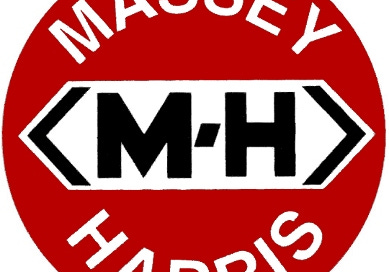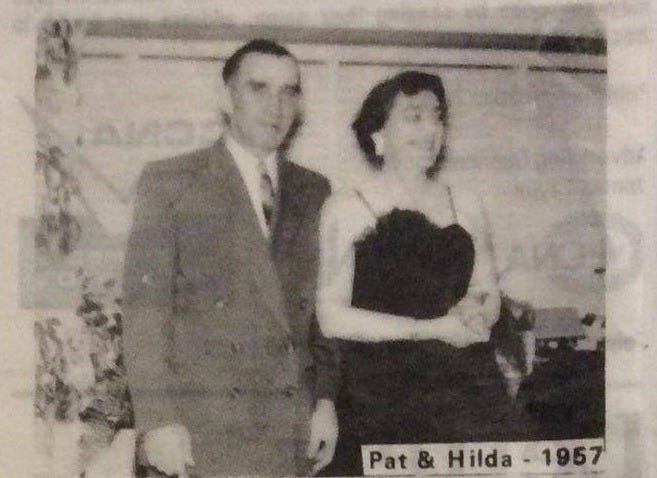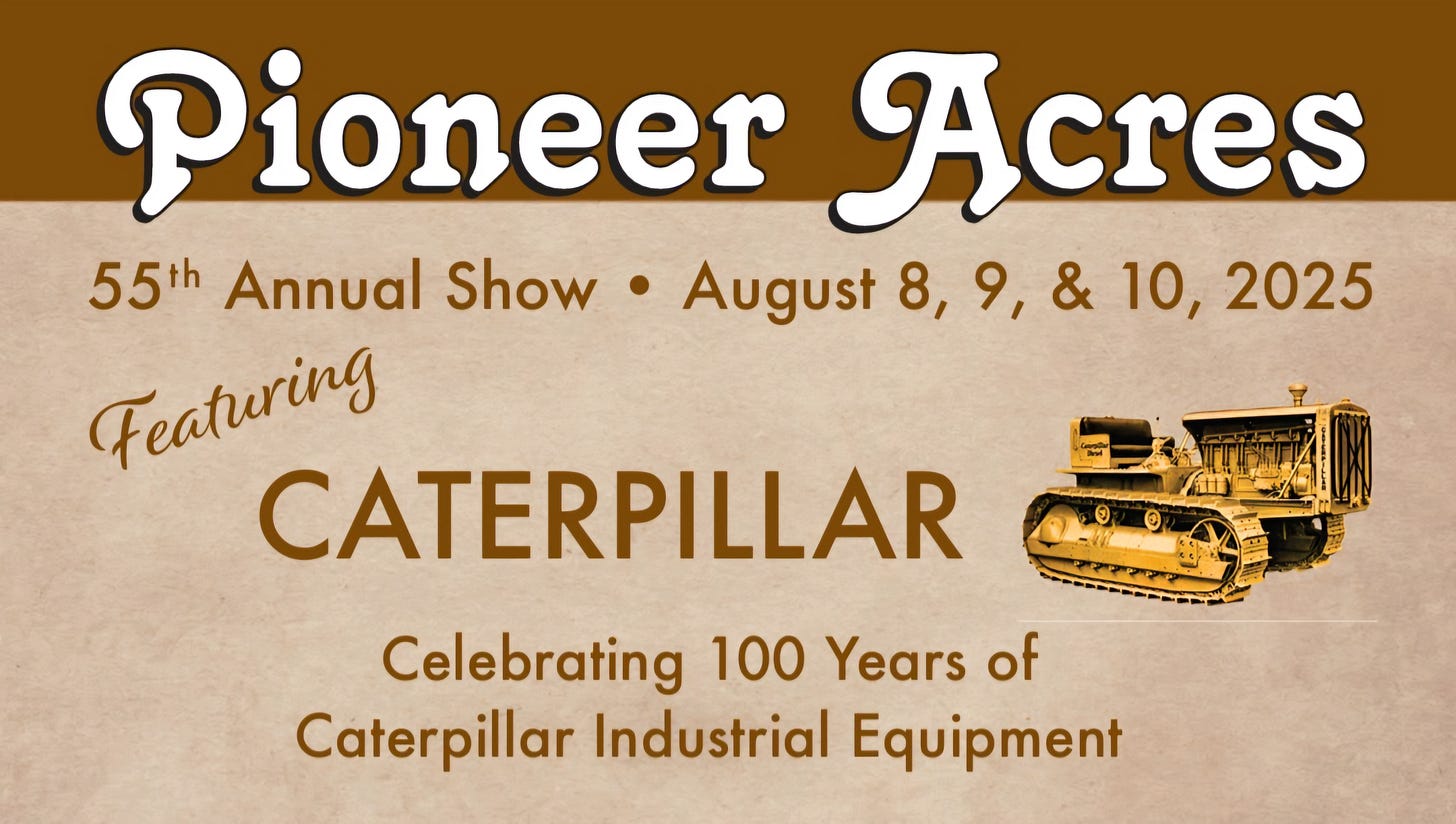In the 1920s and 1930s, the Canadian manufacturer, Massey Harris, had a significant footprint in western Canada. In the area immediately northeast of Calgary, that included two locations positioned less than ten kilometres from each other, one in Irricana and another in Beiseker.
In Irricana, the dealership was started by Modest Long, whose family were early settlers to the area. Modest was born in the United States in 1892; in 1911, he and the rest of the Long family had relocated to the Irricana area during a huge wave of American immigration into southern Alberta. Modest and his father, George Long, built the G. C. Long grain elevator in 1929. The elevator was leased to Midland and Pacific Grain Co. in 1931, but Modest continued to operate it. He also sold coal, flour and Massey Harris farm machinery.
1930 saw the introduction of Massey Harris’ very first “homegrown” tractor. The 11/22 had four by four technology, which was uncommon at the time, and it was priced at a reasonable $1,000.00 (approximately $18,000.00 USD today). But the timing was off, with the Depression slump about to impact every aspect of the farm life. As early as 1930, advertisements from Massey Harris proclaimed, “No Increase in Prices on Massey Harris Farm Implements” and farmers made cautious investments, if they could afford to make the purchase at all.
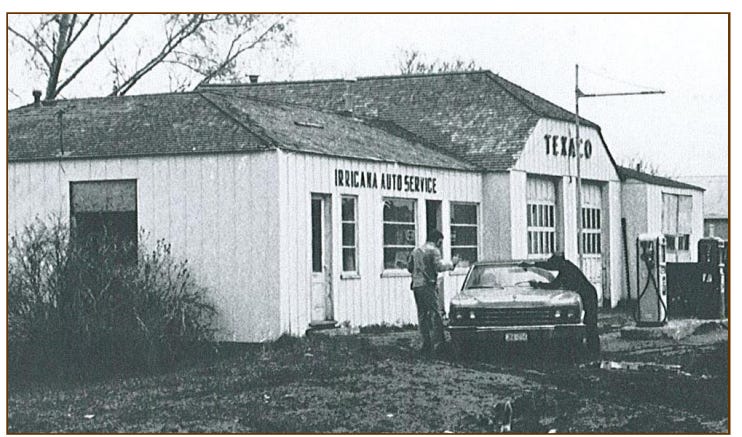
Modest’s farm machinery business was sold to Pat and Hilda Patterson in 1934. The Patterson’s came to Irricana in 1932 and were already running the Texaco Service Station. The Patterson’s partnered with a neighbour, Murray Murdoch, and the business was rebranded the “Irricana Auto Service” in 1942.
Only nine kilometres away, the Schmaltz family operated Beiseker Motors, their own Massey Harris business combined with a Ford dealership. (You can read more about Beiseker Motors here). Pete Schmaltz recalls that Beiseker Motors had a good relationship with Irricana Auto Service, with the Schmaltz’s and Patterson’s helping each other by exchanging parts back and forth.
The 1950s were busy years. Hilda and Pat enjoyed curling, and Pat was a member of the Irricana Lions Club, the Masonic Lodge, and the Chamber of Commerce. He was Irricana’s mayor for over two decades. Hilda volunteered with Salvation Army and the Red Cross. They supported community endeavors like supplying trophies for the Junior Beef Club. In 1959, Pat was honoured by Texaco Canada Ltd. for his twenty-five years in business at a banquet held at the Palliser hotel in Calgary. The Patterson’s established Irricana Hardware and Farm Supply in 1960 which operated until 1975. They also raised two daughters, Dolores and Sharon.
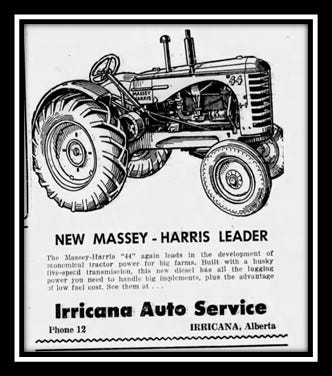
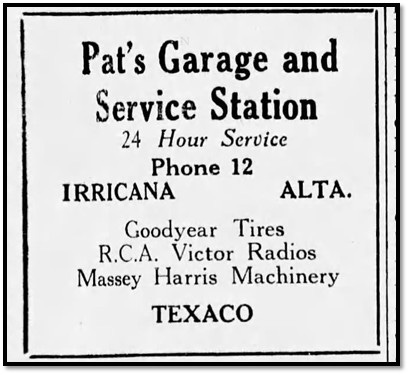
While Massey Harris combines were well-liked, Irricana Auto Service also promoted the MH 44 tractor. The 44 Standard was produced from 1947 – 1953. It had a sturdy five speed transmission, and it was being marketed as an economical option for farmers, because it could run on a promising new fuel: diesel. The 44 came in two other variations, the Row-Crop (45 HP, produced from 1947 – 1953) and the Special (40 HP, 1953 – 1955). Diesel was advertised as an option that had all the power and towing capacity of gas for choring and field work, but at a substantial savings in fuel costs.
Sharon Patterson may have been descended from tractor dealers, but she had a lifelong love for horses. In 1964 at twenty years of age, Sharon was crowned the Calgary Stampede Queen. The Stampede selected their Queen and her attendants based on riding ability, personality and public speaking skills. In 1964, the emphasis of the competition was on horsemanship, the ideal test for Sharon, who had been riding horses all her life.
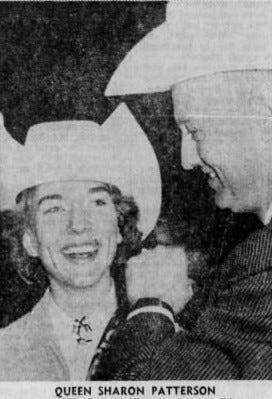
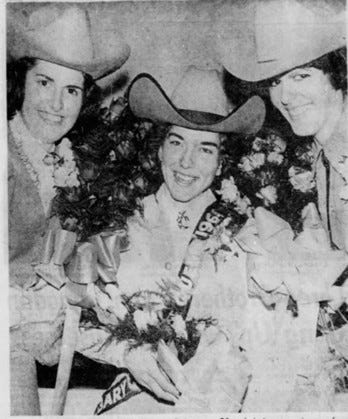
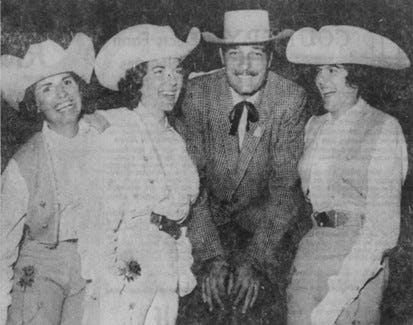
Sharon credited her win to her horse, Patch. “It’s always the horse who wins, not the rider,” she averred. Sharon – and Patch – had already been victorious in rodeo events, picking up trophies for barrel racing in 1957 and pole bending in 1958, both at the Olds Rodeo. They also won the barrel racing competition at the Little Britches rodeo in High River in 1959. As she was anticipating her time as Stampede Royalty, Sharon said that she wanted to make sure Patch was involved. “He’s not exactly a show horse, only about fourteen hands high … but you name it, he can do it, the old guy.” Sharon also stated that she hoped to spend as much time in the saddle as possible. “I’d like to see us riding horses more instead of convertibles.”
Reflecting after the wild ten-day onslaught that was the Stampede, Sharon mentioned that meeting actor John Russell of the television series Lawman had been a highlight. She added that she was planning a full summer of barrel racing! Sharon married Happy Tegert, a Canadian Rodeo Champion in 1965. Her childhood scrapbook contains the quotation, “God forbid that I should go to any heaven in which there are no horses.”
The Patterson’s sold their Texaco service station in 1975 to Gladys Taylor, who turned the building into a publishing house for The Five Village Weekly and other media publications. Beiseker Motors and Irricana Auto Service both closed within years of each other.
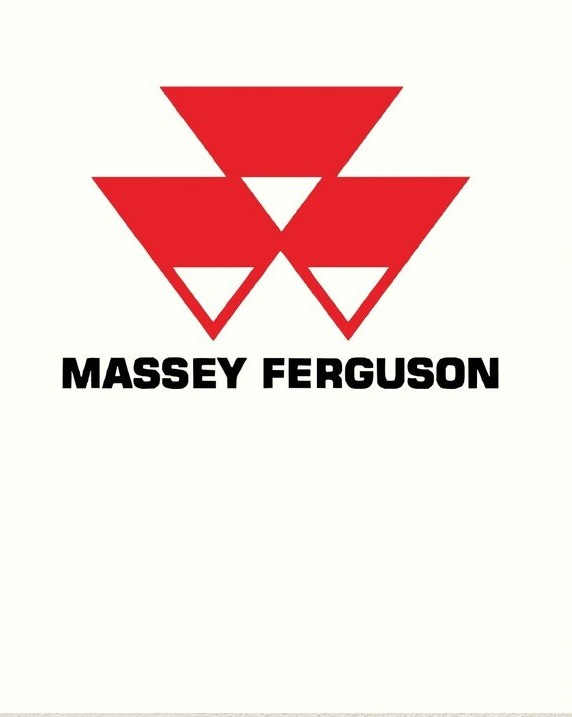
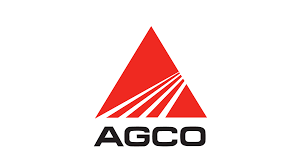
AGCO acquired Massey Ferguson in 1994; today the nearest AGCO dealer is in High River, Alberta.
Sources:
KIK Country, K.I.K. Historical Committee, 1974
The Creation of Massey-Harris and the Evolution of Massey Ferguson, Successful Farming magazine, April 2024
The Calgary Herald
Thank you to Shelly McElroy for preparing this story.
Thanks also to the Historical Society of Alberta for their funding support.


